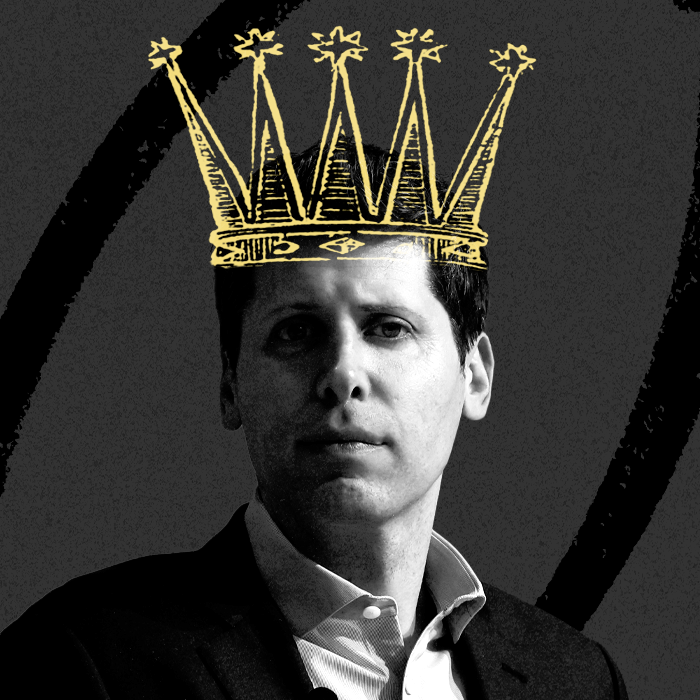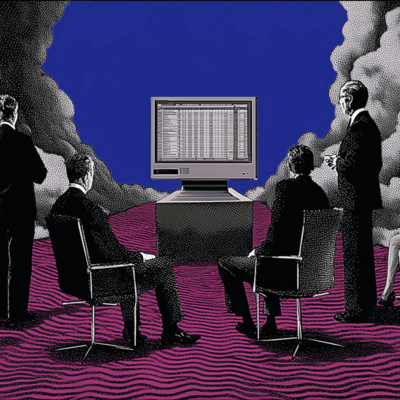
If you come at the king, you best not miss.
OpenAI avoided the biggest own goal in corporate history and reinstalled Sam Altman as CEO, five days after firing him in a board-led coup.
As coups go, this was bloodless and polite. It was also extremely fast.
It took Steve Jobs 12 years to become CEO at Apple again after being fired in a coup. Jack Dorsey took seven years to regain the CEO position at Twitter in the same situation. In fact, to find a coup whose success was even close to as brief as OpenAI’s, we have to look beyond business and into nation-states.
In 2002, the Venezuelan military deposed dictator Hugo Chávez and installed businessman Pedro Carmona as the president instead. Carmona got as far as changing Venezuela's official name back to the “Republic of Venezuela” from the more baroque “Bolivarian Republic of Venezuela,” and dissolving both the National Assembly and the Supreme Court. At this point, everyone said, “Wait, actually, we’d rather have the dictator back,” and he was removed from power, allowing Chávez to reclaim his position. Carmona now lives in exile in Colombia. Total coup time? Thirty-six hours.
In 1981, a senior private in the Kenyan Air Force, Hezekiah Ochuka, led a coup against President Daniel arap Moi. The military stormed Kenya’s national broadcast system and tried to force the Air Force to bomb the State House. Military units loyal to the former president managed to regain control of the country, and Ochuka fled. He was eventually captured and executed. Total coup time? Six hours.
So, in terms of reversing coups, Altman leaves Jobs and Dorsey in the dust and takes third place behind Venezuela’s long-time dictator, Hugo Chavez. Not bad!
Here’s the current state of play:
Altman is back as CEO. Three of the four OpenAI board members who instigated the coup are gone: Ilya Sutskever, Helen Toner, and Tasha McCauley. The board now consists of Quora co-founder and original board member Adam D’Angelo, first-team all-pro Silicon Valley board member Bret Taylor, and Larry Summers. Yes, that Larry Summers, from the 2008 financial crisis and The Social Network. (Keith Rabois approves of this move. Emily Bell does not.)
The Bret Taylor hire is not a surprise; he was CTO of Facebook, co-CEO of Salesforce, and chairman of the board at Twitter before Musk took it over. Rumor has it that if you close your eyes and whisper, “Synergy, integration, innovation,” you can summon him like a Pokemon. Summers is sort of a surprise, but he adds some much-needed D.C. power player flavor to the gumbo. The fact that D’Angelo is sticking around belies rumors that his desire to knee-cap ChatGPT in favor of Quora’s chatbot, Poe, instigated this whole drama. Why he’s still there when the rest of the coup plotters are gone is anyone’s guess.
The plan is for these board members to approve a bigger board of up to nine directors, which might include Altman and someone from Microsoft. (I hope it will also include a wider diversity of directors, as both women on the board are now gone.)
There are three important implications:
- OpenAI and Sam Altman get stronger.
- Startups don’t care, but enterprises are scared.
- OpenAI gets a mulligan this time, but it can’t happen again.
Sam and OpenAI are stronger than last week
All of the events over the last few days may leave OpenAI and Sam Altman in an even stronger position than they were before. The company will have a new board staffed by people with more experience who reflect the company’s current state as one of the most important in technology. Altman’s power and focus will be consolidated, and the OpenAI employees’ sense of unity enhanced.
OpenAI’s team has had the vibes of “the chosen one” in tech for the past year. They almost lost that rarefied status overnight—and now they have a sense of how fragile and special that sense of mission and unity are. More than 700 of the 770 OpenAI employees signed a letter asking for Sam Altman to come back, or they’d follow him to Microsoft. I’d bet this experience increases their mutual trust—and therefore the quality and speed of their execution—over the next year.
Startups don’t care. Enterprises are scared.
My sense in talking to people who run startups that depend on OpenAI is that the events of the past five days haven’t changed much. If you were dependent on OpenAI last week, you’re still dependent on them this week. Maybe you vaguely plan to research open-source alternatives or Anthropic, but there isn’t a mad dash to the exit yet.
Over the few days when OpenAI looked like it might collapse, I do think that there was a temporary sense of opportunity among founders and VCs. But now that Altman is back, that seems like a mirage. (In the long term, this chaos does create room for open-source alternatives to flourish as people seek the power to opt out of OpenAI’s monopoly. But, as I argued last week, I think this only starts to happen as the S curve of model performance begins to level out.)
The more interesting and concerning user base is OpenAI’s enterprise customers. Startup people don’t mind palace coups and Silicon Valley intrigue if you ship good product. If you’re a mid-level insurance executive in Connecticut with a seven-figure Microsoft/OpenAI contract, you’re likely reading the headlines and wondering whether you should invoke force majeure. I have heard that even before this disruption, some enterprise customers were disgruntled at the rate that OpenAI models were changed or replaced with newer versions, thereby negatively impacting reliability. Adding corporate chaos on top cannot be good for trust—and a loss of trust is hard to undo.
That said, OpenAI is still far ahead of anyone else in enterprise deployment of LLM technology. This will slow them down slightly, but it’s not fatal yet.
You only get one coup
Companies are always a shit show internally. Nothing about the board drama or internal power dynamics seems unusual—except that it spilled into the public eye. And, more importantly, that its high-flying CEO was publicly ejected like Evil Knevil over the Grand Canyon.
There is still a lot we don’t know about how and why this all went down. As Evan wrote yesterday, there are significant questions about Altman’s conflicts with his duties at OpenAI. Reportedly, there will be an internal investigation, and I’m interested in its conclusions.
Realistically, though, startups are chaotic and hard. They are even more so when you’re playing with high stakes at the highest levels. No CEO is blameless, but you can make up for chaos and bad decisions if you build something incredible enough. What Altman has created at OpenAI should certainly lend him the benefit of the doubt, in my view.
But, as the saying goes, you only get one coup. If something like this happens again, I’ll question whether I can trust you to actually deliver on your enterprise contracts, much less safely birth a digital god into the world. Serious companies don’t go through this more than once.
I’ll leave you with one final thought:
If Altman is, in fact, speed-running the Jobs career arc, we’ve reached an interesting inflection point in his story. When a renewed Jobs came back to Apple after a coup, he introduced the iPod, iMac, and iPhone.
Does that mean it’s Altman’s time to do the same? The king is back in the castle. We shall see.
For more, read our previous coverage of this saga:
The Only Subscription
You Need to
Stay at the
Edge of AI
The essential toolkit for those shaping the future
"This might be the best value you
can get from an AI subscription."
- Jay S.
Join 100,000+ leaders, builders, and innovators

Email address
Already have an account? Sign in
What is included in a subscription?
Daily insights from AI pioneers + early access to powerful AI tools










Comments
Don't have an account? Sign up!